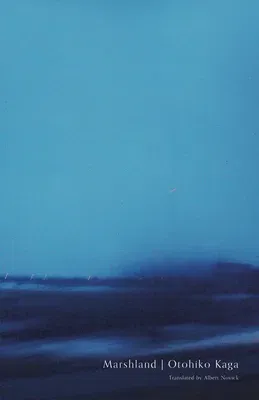Otohiko Kaga's Marshland is an epic novel on a Tolstoyan scale,
running from the pre-World War II period to the turbulence of 1960s
Japan. At forty-nine, Atsuo Yukimori is a humble auto mechanic living an
almost penitentially quiet life in Tokyo, where his coworkers know
something of his military record but nothing of his postwar past as a
petty criminal. Out of curiosity he accompanies his nephew to a
demonstration at a nearby university, and is gradually drawn into a
friendship, then a romance, with Wakako Ikéhata, the brilliant but
mentally unstable daughter of a university professor. As some of the
student radical groups turn to violence and terrorism, Atsuo and Wakako
find themselves framed for the lethal bombing of a Tokyo train.
During their long imprisonment the novel becomes a Kafkaesque
procedural, revealing the corrupt intricacies of the police and judicial
system of Japan. At the end of their hard pilgrimage to exoneration,
Atsuo and Wakako are finally able to return to his original hometown,
Nemuro, on the eastern-most peninsula of Hokkaido island. Here is the
marshland of the title, a remote and virtually unspoiled region of Japan
where Kaga sets a large number of extraordinarily beautiful pastoral
scenes.
Marshland is a revelation of modern Japanese history and culture,
a major novel from the hand of a master well-known in his own country,
though only the second to be translated into English: the wealth of
Kaga's work in fiction remains to be discovered by the Anglophone world.

